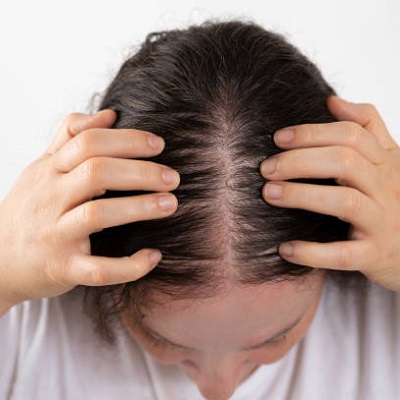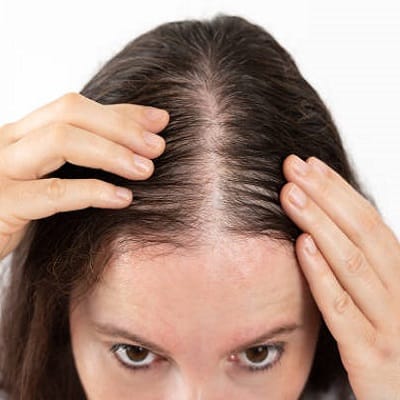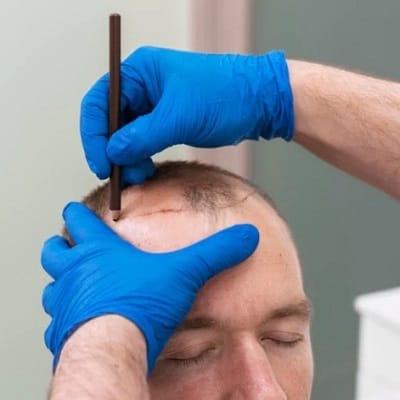Hair loss in Islamabad is a common concern for many people, but it can be alarming and distressing when it happens suddenly and in large quantities. While some hair shedding is normal, excessive loss can have various underlying causes.
In this blog, we will explore the reasons behind losing so much hair and potential solutions to help you regain confidence and maintain healthy hair.
The Hair Growth Cycle:
Before we dive into the causes of sudden hair loss, it’s essential to understand the natural hair growth cycle. Hair goes through three phases:
- Anagen phase is the growth phase, where hair follicles produce new hair. It can last several years; hair length during this phase depends on genetics.
- Catagen phase: This transitional phase lasts for a few weeks. The hair follicle shrinks, and hair growth slows down.
- Telogen phase: In this phase, hair is resting for several months. Afterwards, it falls out naturally, making way for new hair growth.
We lose about 50 to 100 hairs from our scalp daily. It is considered normal hair shedding. However, when you start noticing an increase in hair loss, it’s time to investigate the underlying causes.
Common Causes of Losing so much Hair:
- High stress levels can lead to telogen effluvium, where many hair follicles prematurely enter the telogen phase. This results in a noticeable increase in hair shedding. Emotional factors such as a traumatic event, significant life changes, or chronic stress can trigger this condition.
- Hormonal changes can play a significant role in hair loss. For example, women may experience hair loss during pregnancy, after childbirth, or during menopause due to hormone fluctuations like estrogen and progesterone. Similarly, conditions like polycystic ovary syndrome (PCOS) can lead to excess androgens, causing hair thinning in both women and men.
- A lack of essential nutrients, especially iron, zinc, biotin, and vitamins D and B12, can contribute to hair loss. If your diet lacks these nutrients or if you have a malabsorption issue, it can lead to hair problems.
- Certain medical conditions can cause sudden hair loss. These include thyroid disorders (hyperthyroidism and hypothyroidism), autoimmune diseases (alopecia areata), and skin conditions like psoriasis and seborrheic dermatitis.
- Some medications, such as chemotherapy drugs, blood thinners, and antidepressants, can cause hair loss as a side effect. Additionally, treatments like radiation therapy can lead to hair loss in the treated area.
- Physical trauma, like surgery or a severe illness, can trigger hair loss due to the body redirecting energy and resources away from hair growth. Emotional trauma can also have a similar effect.
- Frequent use of heated styling tools, tight hairstyles (like braids or ponytails), and harsh haircare products can damage hair and lead to breakage and hair loss.
- Androgenetic alopecia, also known as male-pattern or female-pattern baldness, is the most common genetic cause of hair loss. If you have a family history of this condition, you may be genetically predisposed to it.
Solutions and Management:
The appropriate solution for sudden hair loss depends on its underlying cause. Here are some strategies to consider:
- Manage stress.
- Hormone management.
- Nutrition and a balanced diet.
- Medical or Cosmetic Treatments.
- Scalp Care.
If you’re unsure about the cause of your losing hair or if it persists, it’s crucial to consult a dermatologist or healthcare provider. They can perform tests and recommend appropriate treatments or therapies like Hair Transplantation.
All Summed Up!
Losing so much hair can be distressing, but it’s essential to remember that many underlying causes can be managed or treated. Identifying the root cause is the first step toward finding an effective solution.
Whether it’s stress, hormonal imbalances, nutritional deficiencies, or other factors, addressing the issue promptly can help you regain healthy, vibrant hair and boost your self-confidence. If you’re concerned about your hair loss, don’t hesitate to seek professional advice at Enfield Royal Clinics Islamabad to determine the best course of action for your unique situation.










Leave a Reply